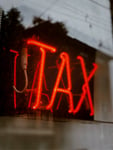In the bustling heart of Thailand’s energy sector, Wattanapong Kurovat, the distinguished director-general of the Energy Policy and Planning Office, issues an unmissable warning to fuel retailers. The frown lines on his face hint at the brewing storm, one born from numerous complaints arguing that the soaring marketing costs imposed by these retailers are unjustifiably hiking up the prices of gasohol. Uplifting spirits, the government has generously sliced off the excise tax, yet, the fuel costs persist in climbing.
The dynamic director-general notes with a grave voice that, “We cannot turn a blind eye when the public is grappling with inflated prices despite our proactive measures.” Wattanapong declares his office’s intention. If the major retailers do not voluntarily curb their marketing expenditures, his prudent office will be left with no choice but to manoeuvre price control into place, roping in the Commerce Ministry’s involvement for an all-rounded solution.
Rolling back to the early days of this month, there was a glimmer of relief when the Cabinet gave the green light for a one-baht reduction in excise tax, beneficial for both benzene and gasohol fuels. This policy came into being on the 7th of November and was slated to last for a comforting three months. Consumers of Gasohol 91 received an extra treat – an additional cut of 1.50 baht, generously subsidised from the Oil Fuel Fund.
Alas, that joy was fleeting. Motorists soon felt their pockets pinched again. They sadly observed the other initially dipped retail prices creeping back up again, after a minuscule supply period at the reduced rate. As grumbles on the highways increased, the retailers pointed at their rising marketing costs, putting out evidence to justify their actions.
Both sympathetic and practical, Wattanapong admits that marketing costs are undoubtedly exacerbated by the weight of labour costs, property rents, land taxes, and even basic infrastructure costs. Nevertheless, he firmly believes that the retailers should position their marketing costs at a more reasoned tier, that should ideally not exceed 2 baht per litre. He shares with an incredulous shake of his head that some establishments are charging a stiff 4.80 baht per litre, almost three times his recommended rate.
Subtle, yet firm, the director-general’s call to major oil retailers was simple: Exert control on the runaway marketing costs and strike a fair balance between the needs of sellers and consumers. His earnest appeal ends on a resonating note. He speaks out on behalf of the everyday citizens, saying “In times of pricing turbulence, we need to bear in mind the hardships faced by the people. Isn’t it unfair to expect them to bear the brunt of rising oil prices while also grappling with exorbitant marketing costs?”


















Be First to Comment